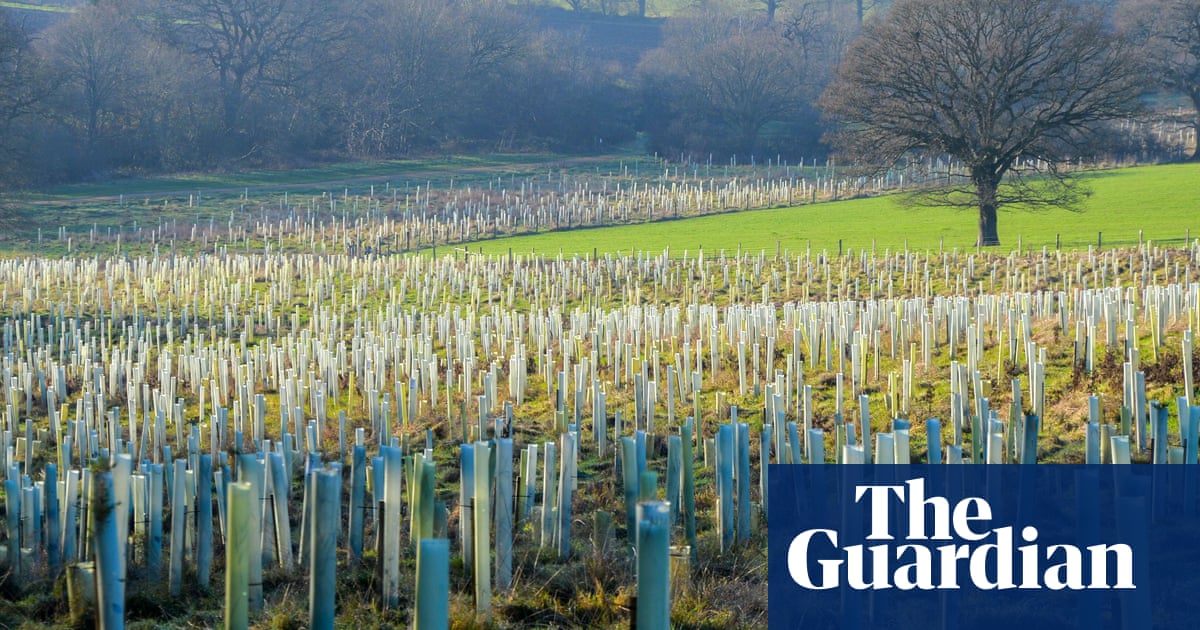London councils are sitting on more than £130m that should be funding local climate action, the Guardian can reveal.
More than £170m has been collected through the mayor of London’s carbon offset fund, which developers are required to pay into to mitigate emissions from new projects, since it was introduced in 2016. However, the capital’s 33 local authorities have spent less than £40m between them. Somehave saidthey do not have the resources, expertise or time to decide how to spend it.
The money gathered from this fund must be spent on carbon reduction measures in local areas. These include energy efficiency improvements to council housing and other buildings that would lower energy bills for tenants, as well as renewable energy projects and district heating schemes. The cash can also be given out as community grants, and some councils have used it to fund education projects, tree planting and community food-growing schemes.
The data, obtained through freedom of information requests, shows a wide variation in spending by councils up to the end of last year. Some authorities have spent all of the funding they have collected from developers while others have spent none. The vast majority have spent less than 20% of the cash.
The Guardian was told by a number of councils that some of their unspent cash – about £15m in total – had been allocated for projects but not yet spent. Meanwhile, Greater London Authority figuresshowcouncils have at least another £150m on the way from developers.
Zack Polanski, the deputy leader of the Green party and chair of the London assembly’s environment committee, said progress had been “unacceptably slow and inconsistent”.
“Thousands of Londoners are stuck in cold, damp and mouldy homes while their bills keep climbing,” he said. “It’s unbelievable that despite having the funds available to fix this, councils are sitting on the money year after year, leaving the most vulnerable to suffer.”
Polanski said the situation “reeks of complacency” and he blamed the London mayor, Sadiq Khan, for a failure to deliver a clear net zero plan.
Tower Hamlets (£20m), Islington (£18.5m) and Westminster (£16.1m) councils have received the most offsetting cash from developers. Tower Hamlets has spent just over a quarter at £5.3m and Westminster has spent £2.4m – about 15%. Both say they have significantly more cash allocated for projects. Islington has spent £12.1m, the most of any London borough by some distance and about 65% of its pot.
Isaac Beevor, a partnerships director at Climate Emergency UK, which monitors the climate action of councils across the country, said Khan needed to “get a grip” on his policy to achieve his target of a net zero London by 2030.
“This money could have been spent on retrofitting council homes, planting trees and greening our boroughs, or supporting community energy,” he said. “Some councils have utilised the fund, so there is no valid excuse for those who have spent the last decade refusing to spend a huge pile of cash destined for climate action. We would expect all London boroughs to be ramping up their climate action by spending this money.”
He added: “This situation highlights flaws in these schemes: if funds aren’t spent, emissions from new developments have not been offset.”
A City Hall spokesperson told the Guardian “urgent talks” were taking place with councils about speeding up the delivery of projects. They said the amount of money collected and spent by councils had been increasing year on year, but added: “A key challenge is the pipeline of deliverable projects available for funding.”
London Councils, an umbrella group representing the capital’s boroughs, said there were “undoubtedly challenges to overcome” and pointed out that Khan’s recommended price of £95 for each tonne of carbon dioxide emitted had been devalued sinceit was set in 2021.
Sign up toDown to Earth
The planet's most important stories. Get all the week's environment news - the good, the bad and the essential
after newsletter promotion
“Boroughs find that carbon offset funds often fail to cover the cost of the projects needed to mitigate operational emissions generated by new development,” a spokesperson said. Councilstold the Greater London Authoritylast year that as well as lacking the required funding, they did not have the time, expertise or resources needed to get projects off the ground.
London Councils has now launched a series of workshops to advise boroughs on how to spend the money.
The majority of London councils charge developers the recommended £95/tonne CO2, but this is only a guide. As of last year, three Labour-run councils have started charging developers more – not with the aim of raising more cash, but to discourage offsetting, which the Climate Change Committee says “should not be relied on” to decarbonise buildings.
Another 15 councilsare said to be looking into raising offsetting costs. Beevor has urged all councils to do this, saying it will encourage developers to hit net zero emissions on-site and remove the need for mitigation projects altogether.
Merton council, which in 2003 introduced the pioneering“Merton rule”requiring new developments to generate 10% of their energy from renewables, now charges developers £300 per tonne of CO2. Lewisham has set a new price of £104, while Westminster now charges £330 for electric-based schemes and £880 for gas-based schemes.
Haringey council in Februaryallocated all of its outstanding carbon offset fundingto projects including the Haringey Community Carbon Fund, which awards grants to community-led decarbonisation projects such as solar panel schemes, upcycling wood workshops, school uniform swaps and football boot recycling.
Of London’s 33 local authorities, 28 declared a climate emergency in 2019 or 2020, announcing bold net zero targets and sweeping commitments to cut private vehicle use, divest pension funds from fossil fuel companies and improve energy efficiency of council housing.
Last year, the Local Government Association found two-thirds of councils were not confident of hitting the net zero targets, saying climate action was being “strangled” by a complex web of hard-to-reach Whitehall funding pots.
